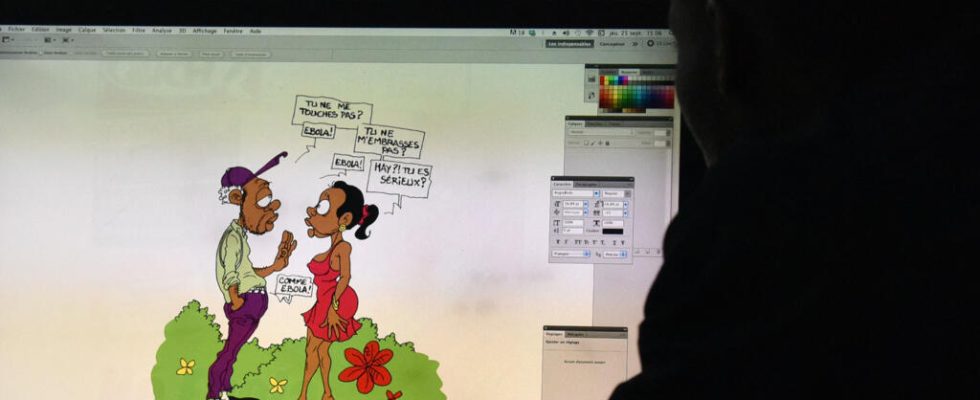In Ivory Coast, the satirical newspaper Gbich remains an institution despite the erosion of its sales. The group that publishes it is counting on the diversification of its activities, in the audiovisual and digital sectors in particular, to relaunch this title which has played a major role in the development of comics in the country.
With our correspondent in Abidjan, Francois Hume-Ferkatadji
Gbich is inseparable from the rise of comics in Côte d’Ivoire. A satirical newspaper, without political color, whose A characteristic is a satirical and gaguesque press cartoon.
Today, the group includes three titles: Hello Police, Go Magazine And Gbichwhich are among the best-selling newspapers in the country.
Gbich can also be read online, and will soon venture on television. The newspaper is embarking on the production of animated films and hopes to regain the number of employees of its golden period.
“We quickly realized that we had to diversify”
The designer Willy Zekid, 20 years old Gbich on the counter, the father of the character “Papou”, receives in the newsroom decorated by the famous Unes of the newspaper: ” At the start, Gbich was just a paper newspaper, but with the evolution of technologies and then with the evolution of the market, we very quickly realized that we had to diversify. »
Focused on large graphic palettes, the designers have busy days, between the paper newspaper and new animation projects. Seri recreates a street corner in the Koumassi district: “I rely a lot on existing streets to be more or less realistic. »
► To listen also Report Africa – The nouchi, slang become language?
Gbich is now an institution. Created in 1999, the newspaper quickly enjoyed great success, thanks in particular to its use of nouchi, a vehicular language born in the working-class neighborhoods of Abidjan: “ Because nouchi, if you will, was basically a popular language. We couldn’t find him in the press, we found him very little. But thanks to Gbich, in fact, people found each other and found comics in which the characters spoke like them, found comics in which the characters lived their daily lives. »
“With the drawings, we reach a large part of the population”
The recipe for success Gbich remains of course his comics. The newspaper offers five to ten pages each week on social or political subjects. « Gbichit is the only newspaper in Côte d’Ivoire that drawssays Colombe Souéné, head of digital communication. In Côte d’Ivoire, we have a population that is a little over 40% illiterate, so who will not necessarily hang on for articles. But for the drawings, we reach a large part of the population, and that is something quite exceptional”.
Due to the press crisis, Gbich however, has not escaped the collapse in the number of its sales. From 45,000 copies in the 2000s, they hardly reach 5,000 copies today. Gbich relies on the audiovisual sector to survive.
► Also to listen to The Dance of Words – Gbich
If we talk about the history of comics, we think a little about the history of Côte d’Ivoire
Koffi-Roger N’Guessan, visual arts teacher and co-author of a book on the place of comics in the Ivorian cultural landscape
